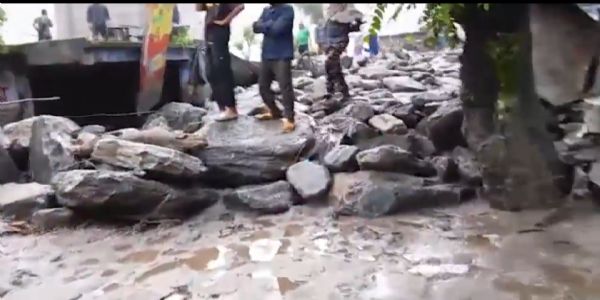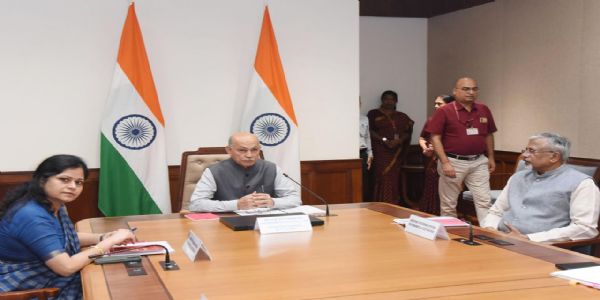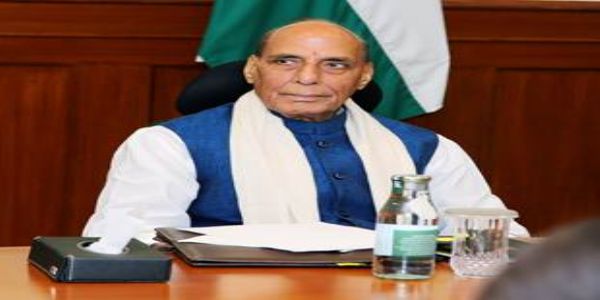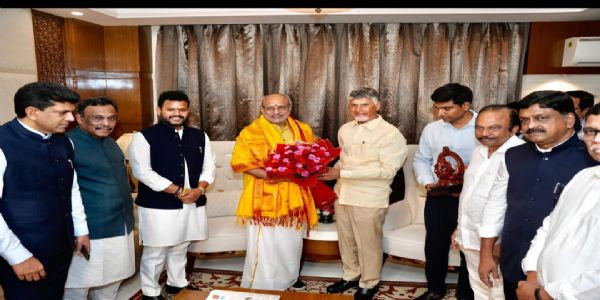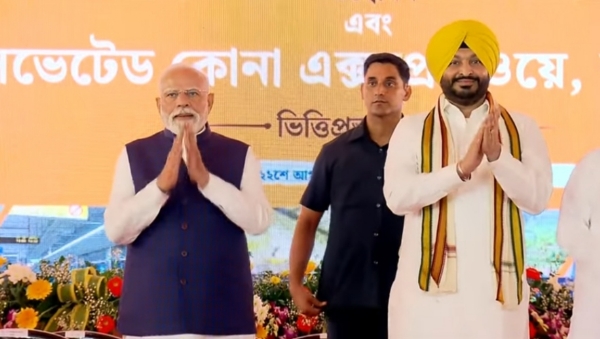
Kolkata/New Delhi, August 22(HS): In a landmark event today, Prime Minister Narendra Modi laid the foundation stone and inaugurated multiple transformative development projects in Kolkata, West Bengal, with a total investment exceeding Rs 5,200 crore. Marking a significant boost to the city’s infrastructure, these initiatives are poised to accelerate urban mobility, enhance connectivity, and fortify Kolkata's pivotal role in India’s journey towards becoming the world’s third-largest economy.
Addressing the audience, PM Modi hailed cities like Kolkata and Dum Dum as “rich embodiments of both India’s history and future,” emphasizing their critical importance in the nation’s economic ascent. He shared his personal experience of traveling on the modernized Kolkata Metro from Noapara to Jai Hind Airport, highlighting the palpable public satisfaction surrounding the city’s upgraded transport system.
A cornerstone project introduced was the six-lane elevated Kona Expressway, a 7.2 km road endeavor worth over Rs 1,200 crore aimed at revolutionizing regional connectivity. This expressway will drastically reduce travel time between Howrah, its surrounding rural locales, and Kolkata, promising a significant uplift in trade, commerce, and tourism.
PM Modi underscored the broader vision of a 21st-century India necessitating a state-of-the-art transport ecosystem. “Across the nation, we are developing and integrating modern transport—from railways, roads, metros, to airports—to ensure seamless connectivity,” he remarked. Kolkata exemplifies this vision through its expanding metro network and multi-modal transport links connecting major hubs such as Howrah and Sealdah railway stations by metro, slashing commute times from roughly 90 minutes to mere minutes.
The Prime Minister proudly announced that India currently boasts the world’s third-largest metro network, having expanded from 250 kilometers in 2014 to over 1,000 kilometers today. Kolkata itself is witnessing a remarkable growth phase with an addition of approximately 14 kilometers of metro lines and seven new stations being integrated—key enhancements set to significantly improve the ease of living and travel for its residents.
A highlight of the day was the inauguration of metro services on vital corridors including the Noapara–Jai Hind Bimanbandar (airport) line, the Sealdah–Esplanade route, and the Beleghata–Hemanta Mukhopadhyay section, the latter serving as a crucial link to the city’s IT hub. These new metro routes are expected to connect some of Kolkata’s busiest areas, shorten travel times, and bolster multi-modal connectivity for lakhs of commuters daily.
Further cementing West Bengal's infrastructural progress, PM Modi announced that the state has achieved 100% railway electrification—a milestone complemented by the launch of a MEMU train between Purulia and Howrah, fulfilling a long-standing public demand. Currently, nine Vande Bharat trains serve West Bengal, with two additional Amrit Bharat trains recently introduced, underscoring the government's commitment to modern, efficient rail travel.
The Prime Minister emphasized environmentally conscious initiatives such as expanding green mobility, increasing electric bus fleets and charging infrastructure, and harnessing urban waste for power generation under the 'Waste to Wealth' program.
The event saw participation from West Bengal Governor Dr. C.V. Ananda Bose, Union Ministers Shantanu Thakur, Ravneet Singh Bittu, and Dr. Sukanta Majumdar among other dignitaries.
This massive infrastructural push—combining swift metro expansions, state-of-the-art highways, and enhanced rail connectivity—is set to lay a strong foundation for Kolkata’s and West Bengal’s future as integral drivers of India’s economic and urban transformation.
---------------
Hindusthan Samachar / Jun Sarkar





